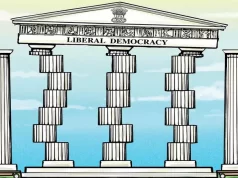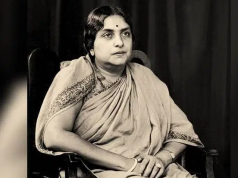Lord Macnaghten, one of the wisest and most learned of judges, observed towards the end of his life that he had given all his days to the study of the law and was satisfied that there was nothing in it.
You may or may not agree with the Irishman who said, “There is no such thing as a large whisky,” but there can be no two opinions on the point that there is no such thing as a perfect law. Doubtless the law is imperfect, and it would be imperfect even if it were made by a committee of archangels.
The reason is that such is the infinite variety of situations in which justice is required to be done between citizen and citizen, or between citizen and the state, that situations are bound to arise in which justice begins only where the law ends. To expect a perfect system of justice based on rules of law is no more rational than to hope to balance soap bubbles on hat-pins.
However acute the recession, there is one activity which thrives and is in a state of perpetual boom: the law-making industry. What the nation needs more than anything else by way of legal reform is assurance of some respite from the Niagara of Rules and Notifications, Ordinances and Acts. No amendment of the law will boost the morale of the people so markedly as an assurance that no new laws would be passed for a stated period. Rulers and Bureaucrats perpetually mistake change for progress and amendment for improvement.
Whatever alterations we may or may not make in our legal system, we should never deprive the Supreme Court and the High Courts of their power to interpret the Constitution and other laws, and to give relief to the citizen under Article 32 or 226 of the Constitution against the executive. Lord Atkin, delivering the judgment of the Privy Council in Eshugbayi Eleko’s case (1931 A.C. 662, 670), observed:
“In accordance with British jurisprudence no member of the executive can interfere with the liberty or property of a British subject except on the condition that he can support the legality of his action before a Court of justice. And it is the tradition of British justice that Judges should not shrink from deciding such issues in the face of the executive.”
Our Supreme Court has repeatedly quoted this passage with approval and pointed out that the same jurisprudence has been adopted in this country on the basis of which our courts exercise jurisdiction.
Even in the days of foreign rule the courts enforced the principle that any action by the executive against the citizen would have to be supported by law and that a court of law could go into the cases of detention and other interference with personal liberty, e.g. the right of free speech and free press. We should continue this elementary principle of a free democracy when we are governing ourselves. The Court’s scrutiny is necessary, however limited, under the present laws which provide in effect that anyone can be put in jail without a trial, that no citizen can plead a right to liberty based on common law, natural law or rules of natural justice, that a Government official may not be permitted to disclose even to a court of law the grounds for detention, and that anyone who has been released by a court may be re-arrested and re-imprisoned without a trial for undisclosed reasons which may be the same reasons for which he was first detained before his release by the court.
The Government is entitled to enforce the law that public order should be maintained and internal security should be preserved. But the question is whether a citizen should have the right to dissent, and the press should have its freedom, both to be exercised in such a way that public law and order and internal security are not in the least prejudiced. If there is a dispute on this point between the citizen and the state, surely the court of law alone can decide the issue.
The importance of having an independent judiciary to whom citizens can go for redress against the excesses of the executive may be illustrated by two seasonable examples. Maharashtra is a comparatively well-regulated State and has an able, cultured and reasonable man as its Chief Minister. Yet there is an Order of the Police Commissioner in Greater Bombay which prevents any assembly of five or more persons without the Police Commissioner’s permission, irrespective of the question whether the meeting is public or private, irrespective of the place where it is intended to be held, and irrespective of the purpose of the meeting. The net result is that tea or dinner parties, social gatherings, funeral assemblies, college lectures, board meetings and countless other meetings of five or more persons inevitably constitute millions of breaches of the Order since its inception. On December 18, 1975, the Bombay High Court struck down the Order as invalid and ultra vires. Next, the unreasonableness of the executive mind is well exemplified by the argument urged on its behalf before the Bombay High Court in Bhanudas Krishna Gaude’s case (77 Bom. L.R. 500, 602–3):
“In fact, (counsel) went so far as to suggest that if the Conditions of Detention Order contained a clause that detenus are not to be allowed to eat any food, it could not be challenged and the petitioner would have no remedy by way of a petition under Art. 226 as long as the Presidential Order suspending the enforcement of the fundamental right under Art. 21, of which the right to eat is a part, is in force. Emboldened by this proposition of (counsel), which we cannot help observing is a startling proposition, the learned Government Pleader interposed and said that even if the Conditions of Detention Order were to authorise that the detenu should be shot, such a clause could not be challenged during the subsistence of the Presidential Order.’’
MPs and MLAs represent their constituencies, but the High Court of a State stands for the whole State and the Supreme Court for the whole country. These Courts decide the fierce controversies which in some other countries are determined deplorably by the arbitrament of force; they maintain the most fundamental equilibriums of our society; they are the agency of a sovereign people to expound the Constitution and to ensure that its mandates are respected.
Since the Courts are the trustees of the law and charged with the duty of securing obedience to it, they have to stand high above the storms. They must necessarily judge the validity of other men’s actions and act as a brake on their conduct. Wise men who are so judged and restrained yield with a grace to the judicial process which is the only way devised by the wit of man to maintain the rule of law. Every time a judge vindicates the rights of the citizen against repressive authority, he really protects the integrity of the Constitution.
When the history of our times comes to be written, the one institution which will be found to have covered itself with honour and earned the nation’s lasting gratitude will be the judiciary.
In April 1973 the Supreme Court decided in Kesavananda Bharati’s case that Parliament, in exercise of its power to amend the Constitution, cannot alter or destroy the basic structure or framework of the Constitution. A recent attempt to get the Supreme Court to overrule that decision and hold that Parliament has unlimited power of amending the Constitution, has happily failed.
Every thinking citizen should know the effect of Kesavananda’s case, because our unfolding future depends crucially on constitutional amendments. In Kesavananda’s case it has been expressly held that the right to property is not a part of the basic structure of the Constitution and, therefore, any amendment can be made to the Constitution in total disregard of the right to property. Thus, Parliament is at full liberty to make constitutional amendments or pass other laws for benefiting the poor or otherwise effectuating economic justice. It was further held in that case that Parliament can amend any part of the Constitution subject only to one restriction, viz. that the power cannot be used to alter or destroy the basic structure or framework of the Constitution.
There can be little doubt that the following are among the essential features which go to make up the basic structure of the Constitution:
The supremacy of the Constitution. Ours is a “controlled constitution’’ par excellence. All institutions, including Parliament, are merely creatures of the Constitution and none of them is its master.
The sovereignty of India. This country cannot be made a satellite, colony or dependency of any foreign country.
The integrity of the country. The unity of the nation, transcending all the regional, linguistic, religious and other diversities, is the bedrock on which the constitutional fabric has been raised.
The republican form of government. India cannot be transformed into a monarchy.
The democratic way of life as distinct from mere adult franchise. There is a guarantee of fundamental rights to ensure justice-social, economic and political; liberty of thought, expression, belief, faith and worship; and equality of status and opportunity.
A state in which there is no state religion. All religions are equal and none is favoured.
A free and independent judiciary. Without it, all rights would be writ in water.
The dual structure of the Union and the States. It permits centralisation and decentralisation to co-exist.
The balance between the legislature, the executive and the judiciary. None of the three organs can use its power to destroy the powers of the other two, nor can any of them abdicate its power in favour of another.
In short, Kesavananda’s case ensures that India shall continue to remain a truly free democracy and a sovereign republic unifying separate States.
The 42nd amendment to the Constitution, passed hastily by the then government during the Emergency, was in direct violation of the Kesavananda Bharati v. State of Kerala ruling. Palkhivala led the decisive charge against the government in the Supreme Court and in 1980 he succeeded in advocating for the axing of clause (4) of Article 368 that quashed the Court’s power to place Constitutional amendments under judicial review.
Access the full document here.
First Published in Illustrated Weekly of India, Jan 1976, p.4–10
More essays and speeches by Nani Palkhivala can be accessed at Indian Liberals, an open, multilingual digital archive committed to preserving liberal voices in the Indian public sphere.
Post Disclaimer
The opinions expressed in this essay are those of the authors. They do not purport to reflect the opinions or views of CCS.






